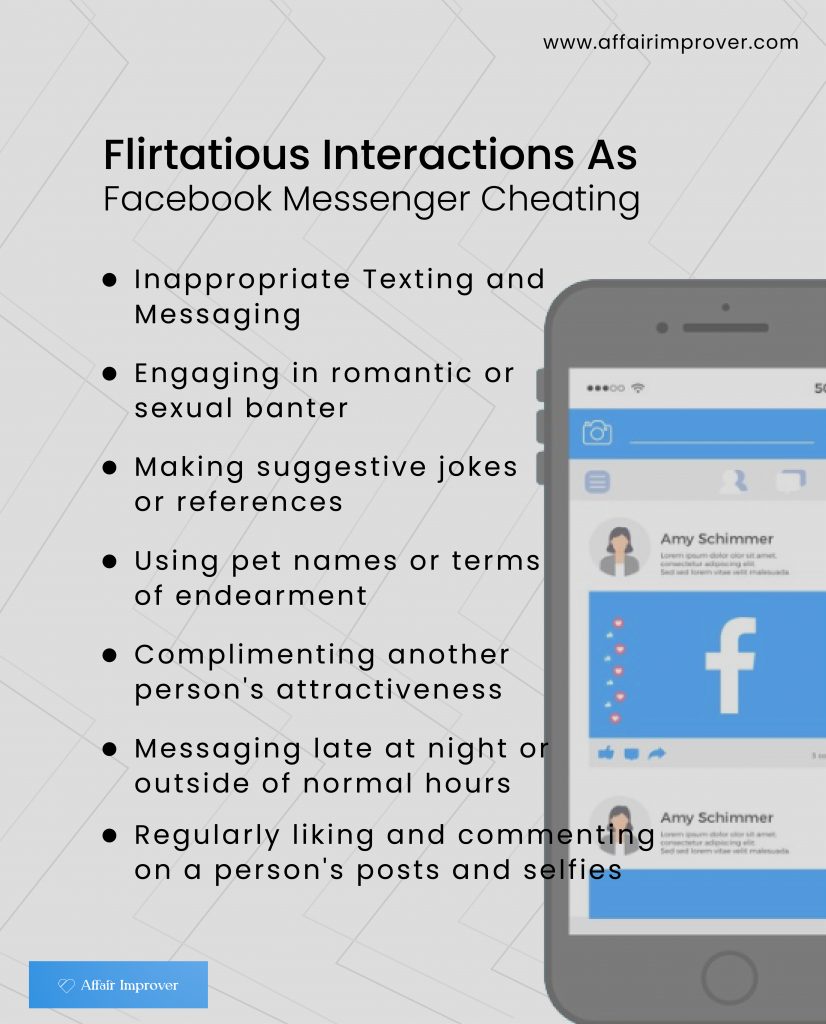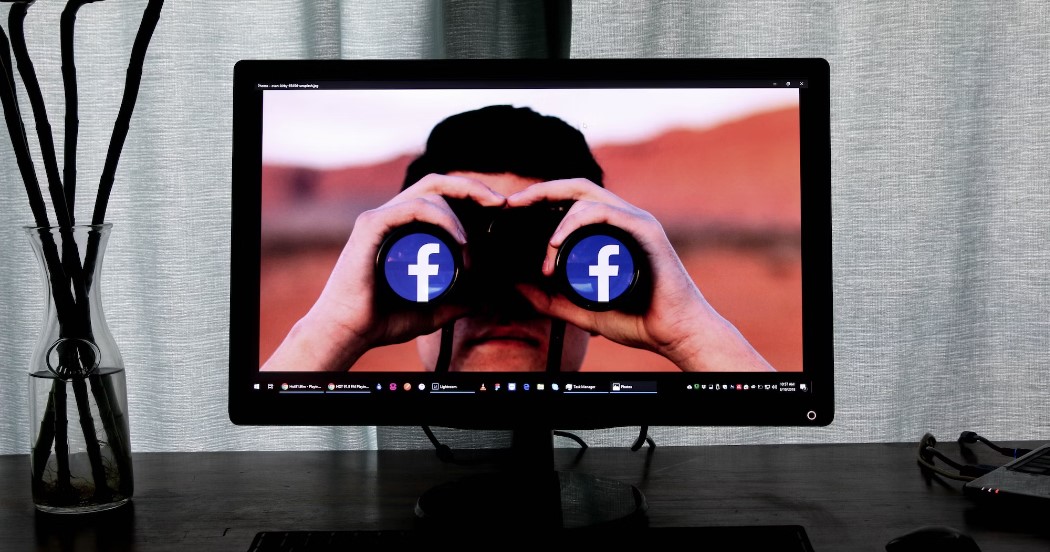In the digital age, infidelity and cheating have taken on new forms. With social media now a ubiquitous part of everyday life, the concept of “Facebook cheating” has emerged — cheating that takes place exclusively online. Recognizing the signs of Facebook cheating is critical for those in committed relationships. This type of betrayal can be just as damaging emotionally as physical infidelity.
The prevalence of social media platforms has fundamentally changed the nature of human relationships and interactions. Facebook, Instagram, Snapchat, and others have made it easier than ever to connect with people from one’s past and present. While social media provides many benefits, it also creates ample opportunities for infidelity, blurring the boundaries between innocent online friendships and emotional cheating. A recent survey found that roughly 30% of divorce filings contained the word Facebook. With numbers like this, it’s clear that cheating on Facebook messenger is a growing problem in modern relationships.
Understanding Cheating on Facebook Messenger
Facebook cheating refers to romantic or sexual activity and communication that takes place secretly over social media. It can take many forms, including liking flirty posts, private messaging with someone, and even having an emotional affair entirely online. With the time, many people spend on social media, platforms like Facebook offer ample opportunity to stray outside a relationship.
More specifically, Facebook cheating may include behaviors like:
- Flirting with past lovers or new acquaintances via private Facebook messages cheating
- Expressing romantic interest in someone other than your partner
- Engaging in sexually-charged conversation and flirtatious banter
- Confiding emotionally in an outside person about your relationship
- Liking and commenting on a person’s provocative photos
- Following or connecting with exes on social media
Studies show that the rise in social media usage has dramatically increased the likelihood of infidelity and cheating behaviors. Discussions on personal relationships on Facebook have grown by more than 4,000% annually. It’s clear that Facebook cheating can damage relationships profoundly.
Some of the key factors that make Facebook cheating especially harmful include:
- The non-physical nature makes it easier to rationalize and hide from a partner.
- Private messaging allows clandestine communication with few safeguards.
- Emotional intimacy and attachment can form entirely online.
- Digital evidence, like texts, provides proof of betrayal.
- Blurred boundaries around acceptable social media behavior.
Facebook cheating essentially constitutes having an emotional affair in a digital form. The implications for relationships can be just as devastating as outright physical infidelity. Understanding the various behaviors that fall under this umbrella is key.

Most Common Facebook Cheating Signs
Being aware of the warning signs that may point to cheating on Facebook is important for those in committed relationships. While every situation is different, there are some common online behaviors that should raise red flags:
Excessive Facebook Usage
Spending an excessive amount of time on Facebook, to the point where it interferes with daily life and relationships, can signal potential cheating or inappropriate behaviors. Research shows a correlation between compulsive social media use and a higher tendency to emotionally and physically cheat.
Signs of problematic Facebook use include constantly checking notifications, ignoring loved ones in favor of scrolling feeds, staying up late or awake all night online, and experiencing anxiety when not able to access Facebook. If your partner is excessively preoccupied with FB use and it crowds out your time together, it may point to Facebook cheating spouse risk.
Secretive Online Behavior
Partners who hide aspects of their online presence, like separate Facebook accounts, or who quickly switch screens when their partner walks by, may be engaging in secret online behaviors like messaging with other people. This kind of secrecy on social platforms is a red flag.
Specific secretive behaviors include changing passwords, logging out of messaging before letting you view accounts, hiding certain friends/contacts, turning the screen away when you enter the room, and generally refusing to show you what they are doing because of being scared of you finding out how to catch a cheater on Facebook.
Flirtatious Interactions as Facebook Messenger Cheating
Liking, commenting frequently, and messaging back and forth with someone on Facebook can cross the line into emotional cheating. Flirty interactions online with someone other than your partner should raise alarm bells.
Flirtatious online behaviors to look out for include:
- Complimenting another person’s attractiveness
- Making suggestive jokes or references
- Engaging in romantic or sexual banter
- Regularly liking and commenting on a person’s posts and selfies
- Messaging late at night or outside of normal hours
- Using pet names or terms of endearment
- Inappropriate Texting and Messaging
Secret texts and Facebook messages with someone other than your partner are warning Facebook messenger cheating signs. If your partner guards their phone closely or deletes texts, they may be hiding inappropriate communications.
Messaging behaviors that suggest cheating include asking to switch to texting or WhatsApp when you enter the room, hiding their phone screen while texting, laughing secretly at messages, deleting entire text conversations, and generally being very protective of their messaging apps.

Suspicious Social Media Behaviors
Consistently liking or commenting on a person’s provocative photos or engaging with flirty accounts on social media are examples of gray area behaviors that may constitute Facebook cheating.
Other suspicious behaviors include:
- Viewing a lot of someone’s story posts on apps like Instagram or Snapchat
- Following accounts like “crush” pages or pick-up artists
- Adding a lot of new friends/followers of the opposite sex
- Constantly posting selfies and pics to get more attention online
Other common Facebook cheating signs include frequently receiving texts or calls from unknown numbers, laughing secretly at messages, and a spike in texting frequency with the same person.
Additional behaviors that may indicate cheating are:
- Noticeable change in text frequency with someone
- Efforts to conceal phone or computer from you
- More time spent primping and dressing up before using devices
- Using Facebook dating apps or niche dating sites
- A new email account you don’t have access to
- Less Connection in the Relationship
Cheating in any form invariably creates distance between partners. If your time together has decreased, intimacy has dropped off, or you feel your partner becoming emotionally distant, it may point to Facebook secret conversations cheating. Lies, gaslighting, and general evasiveness about their online activities are also potential signs.
Using Facebook as a Venting Outlet
Partners who frequently complain about you or vent about their relationship with online friends may engage in inappropriate emotional intimacy. Typical behaviors are frequently posting about feeling lonely, misunderstood, or unsupported in the relationship. This kind of emotional infidelity is common on Facebook.
Reconnecting with Past Loves
Searching out and connecting with old flames on Facebook is a recipe for disaster. Communication with exes frequently leads to Facebook flirting cheating, and emotional or physical affairs. Has your partner suddenly friended and started messaging their ex from college? It’s likely more than just catching up.
Catching a Cheating Partner on Facebook
- Monitor Friend List and Interactions: One of the most straightforward ways to catch a partner involved in Facebook affairs is by observing their Facebook friend list and interactions. If you notice the addition of unknown individuals, particularly if there’s a lot of interaction with these new ‘friends,’ this could be a red flag. Be aware, however, that this method requires a degree of transparency in your partner’s social activities; some individuals may choose to hide their friends’ list or certain interactions.
- Use of Spy Apps: Utilizing spy apps is another method to monitor Facebook activity. Applications can help monitor your partner’s social media activities, including their Facebook messages, without them knowing. These apps can provide access to message content, timestamps, and details of the person on the other side of the conversation. They can be called probably the best way to expose cheating on Facebook.
- Check ‘Likes’ and Comments on Photos and Posts: Another strategy is to keep an eye on your partner’s ‘likes’ and comments. If your partner is constantly liking or commenting on another person’s photos or posts, there might be more to their relationship than meets the eye. This requires regular monitoring and, again, a degree of transparency in your partner’s activities.

Dealing with the Aftermath of Cheating on Facebook
Discovering that your partner has been engaging in an affair over Facebook can be utterly devastating. Emotions like hurt, anger, confusion, and jealousy may flood in. Resist the urge for knee-jerk reactions like deleting accounts or immediately demanding a breakup. Take time to process the situation before determining your next steps. Here are some tips for coping with the aftermath of Facebook cheating:
- Communicate your feelings honestly once you’ve calmed down and collect evidence of their Facebook affairs if possible. Confrontation provides a chance for them to explain their actions and for you to express your hurt.
- Take a social media hiatus if needed. Temporarily deleting Facebook, blocking certain people, and taking space from the online world allows for self-reflection.
- Don’t make rash decisions about the fate of your relationship just yet. Take it one day at a time and evaluate if the situation is forgivable or a dealbreaker.
- Make your partner take responsibility for their Facebook infidelity. Demand complete openness and transparency about all online activities moving forward. Access to their accounts, cutting ties with romantic interests, etc.
- Focus on self-care through healthy outlets like exercise, hobbies, and social support. Don’t neglect your emotional and physical needs during this turbulent time.
- If you choose to try reconciling, be prepared that rebuilding broken trust will take consistent effort over time. Set clear boundaries and expectations for social media use.
With compassion, hard conversations, and professional help, it is possible for some couples to heal after Facebook cheating. Take it slowly, implement strict boundaries, and make informed choices about your path forward.
Conclusion
Facebook cheating is a growing issue in the era of social media. Being aware of the signs like secretive behaviors, emotional affairs, messaging, and flirtations can help identify potential problems early. If you see multiple warning signs, consider having an open conversation with your partner, and expressing your feelings without being accusatory. A sincere conversation can help mitigate damage and rebuild intimacy if cheating has taken place.
In our tech-driven world, establishing clear boundaries around appropriate social media conduct is key to maintaining healthy relationships. While it presents new challenges, open communication and trust in partners can prevent social media from destroying an otherwise happy relationship. With some concerted effort, Facebook can remain a safe space for couples to connect, not for cheating through Facebook.
FAQs
Facebook cheating encompasses a wide range of behaviors, so it’s helpful to have clear, specific examples. Here are answers to some frequently asked questions:
What Are the Most Common Signs of Facebook Cheating?
The most common signs are increased Facebook usage, secretive behaviors online, flirtatious interactions, inappropriate messaging, suspicious social media behaviors, emotional distance in your relationship, complaining about you online, and connecting with past exes.
How Can One Confront a Partner About Suspected Facebook Cheating?
Have an honest conversation when you are both calm. Point to the specific behaviors that seem inappropriate and explain how Facebook cheaters make you feel. Allow your partner to respond without getting angry or reactive. Focus on rebuilding trust and openness.
Can Facebook Cheating Be as Harmful as Physical Infidelity?
Yes, Facebook cheating can take an immense emotional toll and ruin trust in a relationship. The intimacy and deception of online affairs can damage couples psychologically just as much as physical trysts. Don’t discount Facebook cheating as trivial.
Is My Partner Crossing the Line or Am I Overreacting?
Ask yourself how you would feel if the situation was reversed, and objectively examine your partner’s behaviors. Set clear expectations for acceptable social media conduct. Remember that cheating involves deception – if your partner hides online activity from you, it’s usually for a reason. Listen to your gut.
Are Some Types of Facebook Cheating Worse Than Others?
Explicit sexual chats and sharing of media tend to be regarded as more severe betrayals, as they indicate intent to take Facebook cheating app affairs offline. However, any form of duplicity that violates relationship trust and boundaries can potentially be devastating. Don’t make excuses or downplay inappropriate behaviors.
Facebook Cheating Signs Infographics





